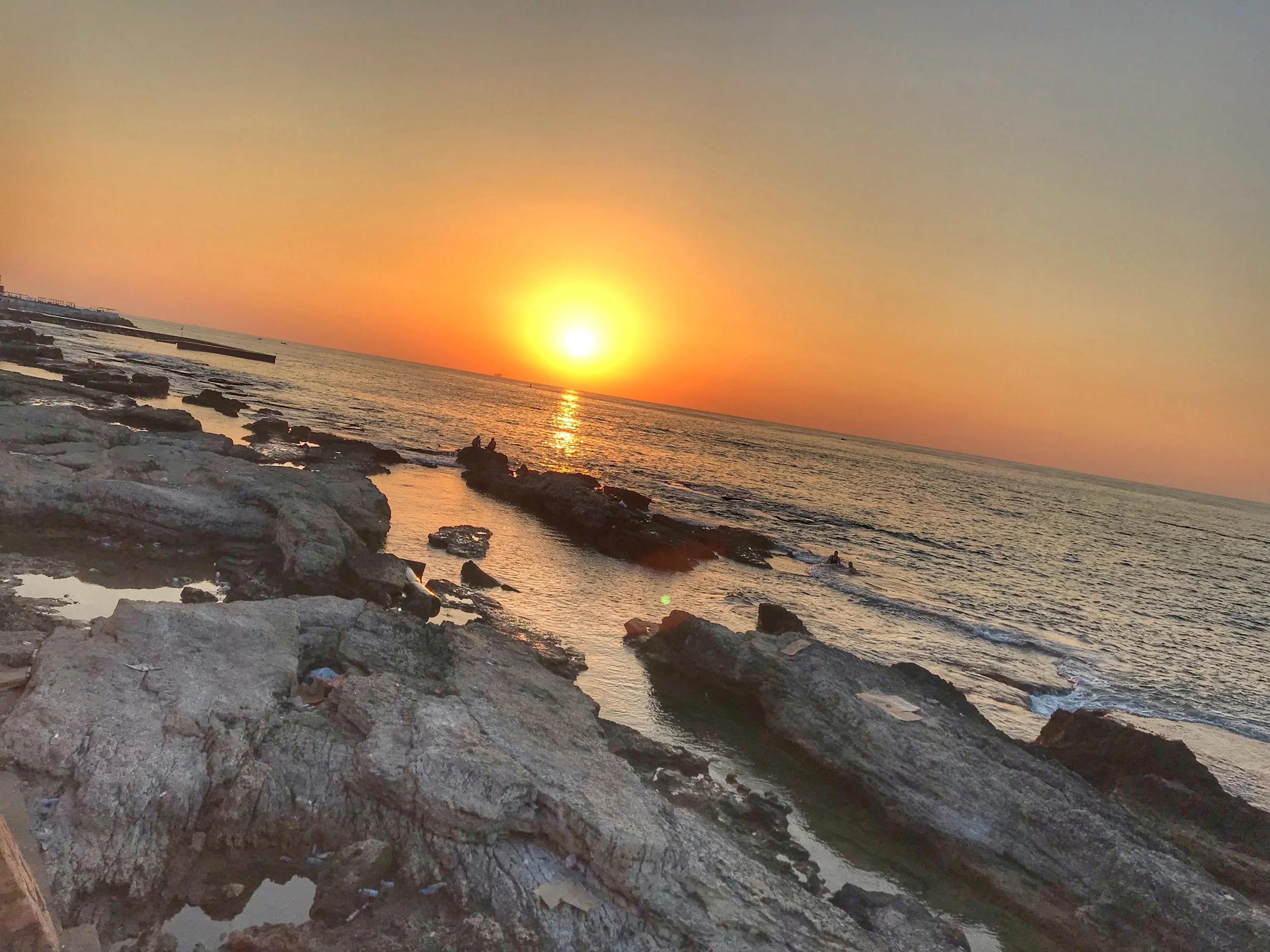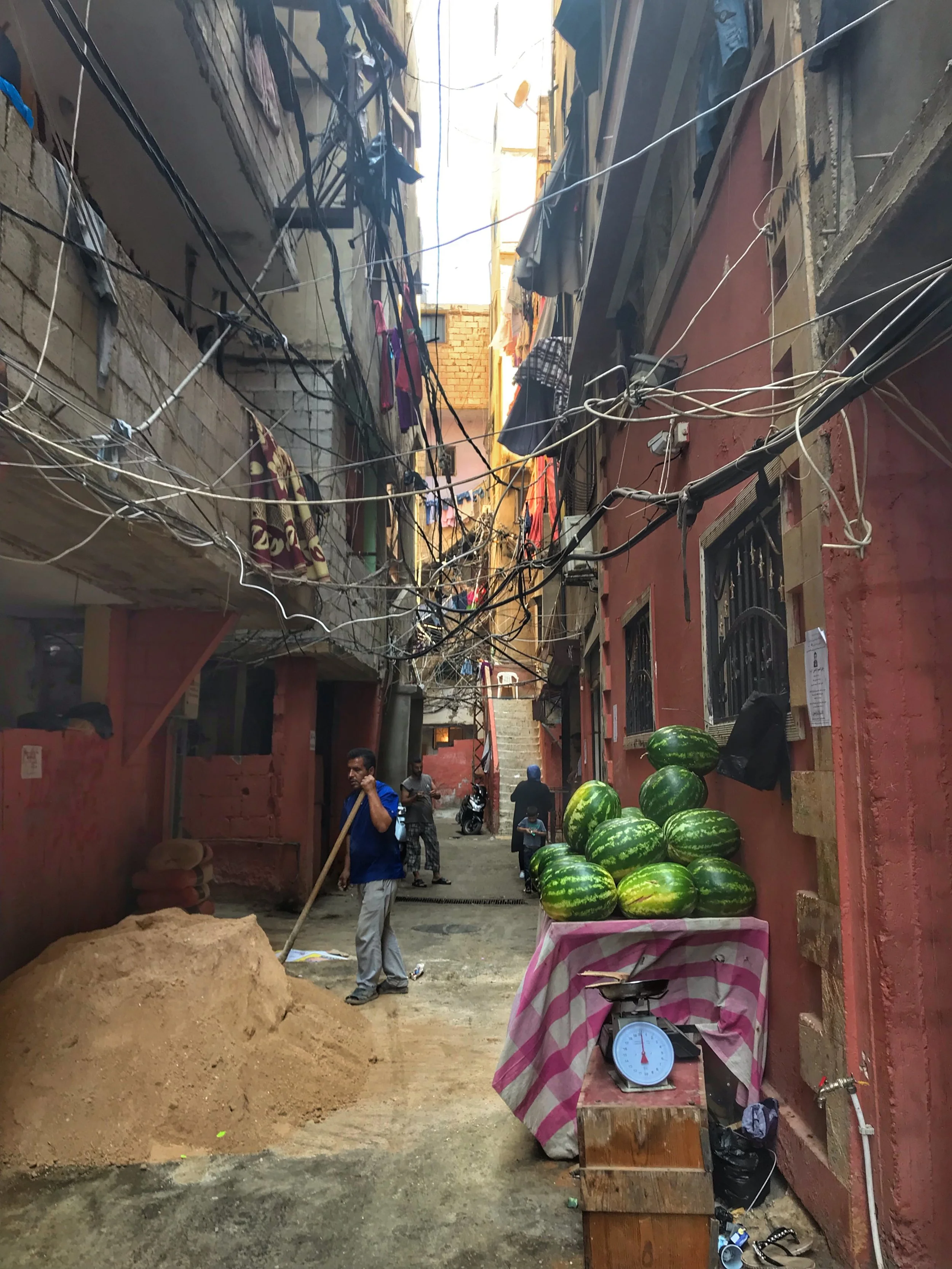I Have A Very Dysfunctional Relationship With The Country Of Lebanon
Sunset from the Corniche over the Mediterranean Sea. My favorite. Beirut, Lebanon. August 7, 2019.
“I have a very dysfunctional relationship with the country of Lebanon.”
This thought passed my mind on a very warm, humid day after fighting with the WIFI to come back on to work with my VPN after the power cut with sweat trickling down my back. Which by the way is a daily occurrence; the sweat and the power cuts.
It is maddening to explain what I waste time on in Beirut, it honestly wouldn’t make sense to you. Yet the reality is I spend hours every day (not exaggerating) just getting my daily needs met, i.e., power, water, internet, food. Hours spent every day frustrated by things I do not give a second thought to in Denver. Exhausting. Then add some Frenchie Arabic into the mix and some days you feel a little crazy. Which basically means you fit in with the Lebanese.
I have often described Beirut as my abusive boyfriend that whispers sweet nothings in my ear and 10 minutes later gives me a good beat down…and I keep going back to him.
I have thought long and hard about why I am actually here because right now I look and feel like a strung-out hippie after a very bad trip…and not the kind I’m on.
Sure, it’s super fun to come back to a place you used to live – visit old haunts, see dear friends, eat ALL the food, and engage in work that is super important. And whether you believe me or not there is something magical about Beirut, until there isn’t. I recently took a volunteer on a legit sightseeing tour with a tour company. The tour guide explained Lebanon and its history in the morning, for me it was pretty whitewashed, a fairytale of what Beirut could be. By mid-afternoon, the narrative got darker and darker, all wasn’t as it seemed. I smiled to myself on the bus and thought, “yup, the two faces of Lebanon.”
I’ve been purposeful in coming back in August. August is an unpleasant month, well anywhere, but especially in Beirut – high humid and heat, increase in power cuts, and government water runs out within the first two weeks of the month. While this might have a tinge of complaining, it’s more of being awestruck by all of it -- the chaos, the corruption, the traffic, the unrelenting heat, the nonsense of nothing working! Nothing works. Nothing. Not the electricity, not traffic, and definitely not the political situation.
I know it’s hard to understand, and even harder to try to explain the situation for Palestinians in Lebanon. Lots of Lebanese don’t take too kindly for my purpose here to help Palestinian refugees or for the Palestinians themselves. It’s a long, violent, bloody, and oppressive 71 years for the Palestinians in Lebanon. The tour guide, from above, asked me what I did in Lebanon and reacted by saying, “You know the Palestinians started the civil war here.” While I disagree with that statement, the PLO was an active player in the Lebanese civil war and the reason Israel invaded in 1982. With that said, three Palestinian refugee camps were leveled because of massacres in the 15-year war. It was complicated, still is, and no one comes out looking like a good guy in Lebanon, no one. More info on it here.
What I can say is civilians suffered in Lebanon, including Palestinian refugees.
Now, everything I described for you about life in Beirut in August, imagine what it’s like in a refugee camp that is 70 years old. For example, Shatila Camp in Beirut sees less than 12 hours of power a day right now.
But, that’s not what I want you to take away from this blog post.
I have been in and out of many camps in Lebanon. I have had the privilege of visiting projects happening inside the camps led by Palestinian refugees. Many of them are young, like young enough to be my kids. The work they are doing is hard, thankless, and underfunded. The conditions are literally from another world. And yet, they press on and I have had more than one organization tell me they will continue despite lack of funds.
They are not giving up on their communities. They are not giving up on their situation.
They are not giving up.
It’s hard for me not to be emotional, even as I write this. Because I have seen first-hand what they are dealing with, what they are lacking, and what they are immersed in. I have been invited in and have experienced their hospitality. I have a responsibility because I am a witness.
Bus rides in the Middle East help me process, they are long, tedious, and I am usually alone or too tired to carry on a conversation. The last one had me gazing over the Mediterranean as we sped recklessly up the freeway back to Beirut. I wished for ALL the money to give away (one million dollars crossed my mind) to properly support them so they knew just how many people were for them and believed in them. I know it’s a pipe dream. But I can’t help but wish for more people to be involved in the mess and the complication of their lives.
Shatila Palestinian refugee camp. Beirut, Lebanon. August 8, 2019.
I wished things were different.
I wished for justice.
I wished for a million dollars.
I also wished for a big glass of Lebanese wine.
So…
There are many reasons to hate this country and yet, for the most part I don’t, I can’t. I know too many people. I have been in their homes. I have eaten their food. I see their pain. I see their dreams. I’ve seen them.
And because of that, I have learned that there is always hope even in the midst of such despair. Where there is breath, there is hope. It’s inescapable. Even in a place like Lebanon. Even in a Palestinian refugee camp. Hope.


